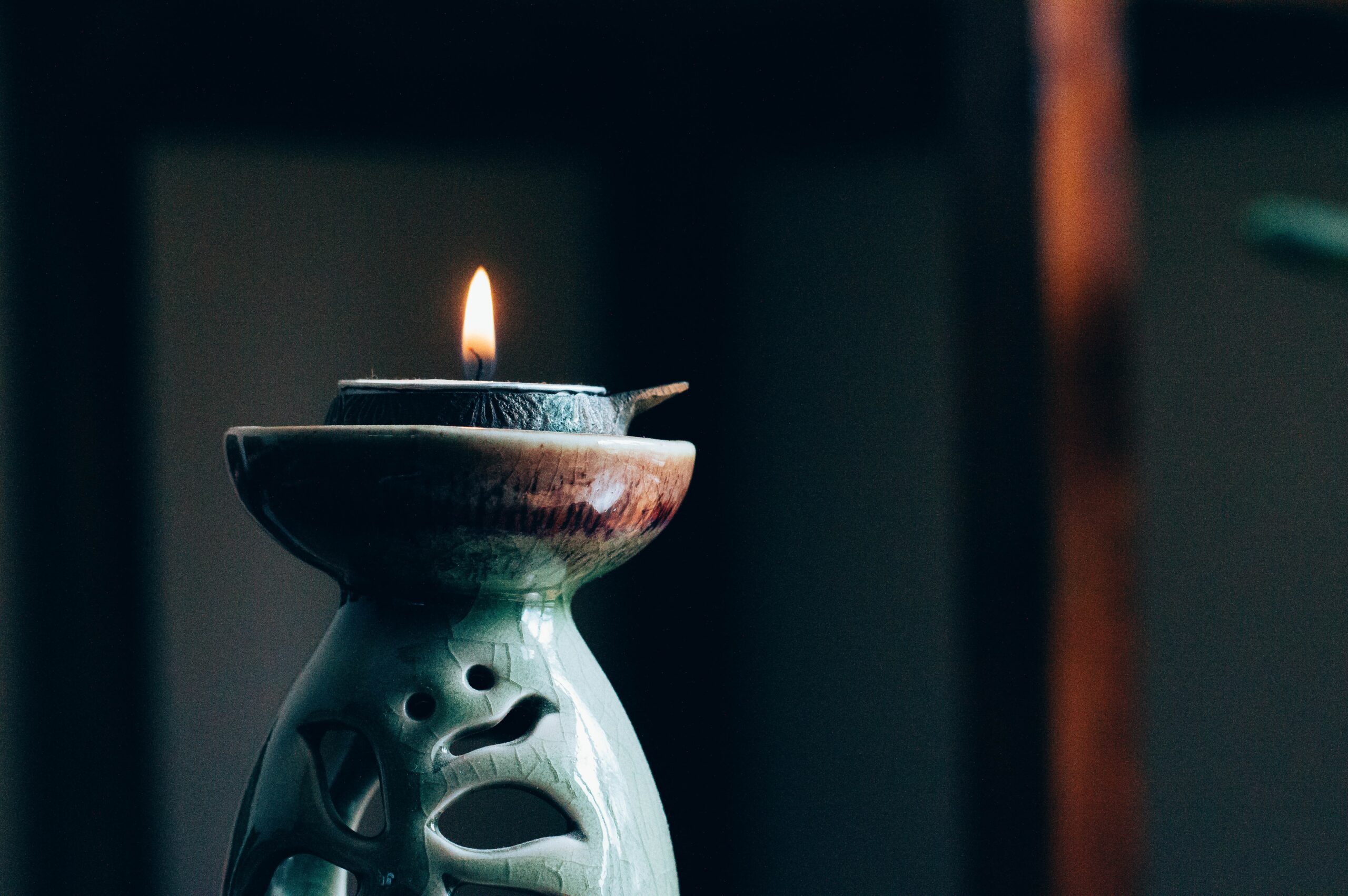Discover the history of bodywork and how this ancient healing can benefit you in today’s modern world!
Massage therapy. We don’t often think of it as an ancient healing art form, but it’s stood the test of time as a powerful means of promoting physical, mental, and emotional well-being.
When I started to think about a career in massage therapy, I had no idea how long it’d been around, let alone how healing it could be.
It wasn’t until I got into school that I started to understand how much there is to this type of bodywork and touch therapy. That it goes beyond just a massage. I think it’s important as a bodyworker to truly understand that.
I think we’ve all had a subpar massage, where the therapist isn’t putting their heart and soul into their craft, and maybe just going through the motions.
Massage is so much deeper than performing some moves on someone. For it to be healing and therapeutic, there needs to be loving intention. It’s an artistry, and should flow like Marilyn Monroe’s skirt in the wind.
Discover the history of bodywork and how this ancient healing can benefit you in today’s modern world!
Massage therapy. We don’t often think of it as an ancient healing art form, but it’s stood the test of time as a powerful means of promoting physical, mental, and emotional well-being.
When I started to think about a career in massage therapy, I had no idea how long it’d been around, let alone how healing it could be.
It wasn’t until I got into school that I started to understand how much there is to this type of bodywork and touch therapy. That it goes beyond just a massage. I think it’s important as a bodyworker to truly understand that.
I think we’ve all had a subpar massage, where the therapist isn’t putting their heart and soul into their craft, and maybe just going through the motions.
Massage is so much deeper than performing some moves on someone. For it to be healing and therapeutic, there needs to be loving intention. It’s an artistry, and should flow like Marilyn Monroe’s skirt in the wind.

Its origins in ancient civilizations to present-day, massage therapy’s been a trusted practice used to alleviate pain, induce relaxation, and restore balance. Let’s dive into the history of massage therapy, highlighting its evolution over time and exploring its numerous benefits.
We’ll also dive into the scientific research that supports the effectiveness of massage therapy, showing its impact on the mind-body connection, meditative states, and the importance of self-care.
The Ancient Roots of Massage Therapy
Massage therapy traces its roots back to ancient civilizations, where it played a significant role in their cultures. Ancient Egyptian hieroglyphics and Chinese texts dating back thousands of years have documented the use of massage for therapeutic purposes. In China, the practice of massage, known as “anmo,” was an important part of traditional medicine, promoting the flow of vital energy (qi) through the body. Similarly, ancient Greek and Roman cultures embraced massage to promote physical well-being and relaxation.
Massage Therapy’s Evolution
Massage therapy has continued to evolve throughout history, adapting to the cultural and medical practices of different civilizations. In the 19th century, Swedish physician Per Henrik Ling developed the Swedish massage technique, which became widely recognized for its therapeutic benefits. Ling’s system focused on various movements, such as effleurage, petrissage, and friction, to enhance circulation and relieve muscle tension.
The Benefits of Massage Therapy
- Physical Benefits: Massage therapy provides numerous physical benefits. It improves blood circulation, reduces muscle tension, and enhances joint mobility. The manipulation of soft tissues helps release endorphins, providing natural pain relief. Massage therapy also supports the lymphatic system, aiding in the removal of toxins from the body.
- Mental and Emotional Benefits: Massage therapy promotes mental and emotional well-being. The release of endorphins during a massage session reduces stress and anxiety, leading to improved mood and overall mental health. Massage also helps regulate hormone levels, enhancing relaxation and reducing symptoms of depression.
- Mind-Body Connection: Massage therapy strengthens the mind-body connection. By inducing a state of deep relaxation, it allows individuals to become more aware of their physical sensations and emotional states. This heightened awareness fosters self-reflection and can lead to improved self-care practices.
- Meditative State: Massage therapy can induce a meditative state, similar to mindfulness meditation. Through focused breathing and mindful presence, massage recipients can experience a sense of profound calmness and heightened awareness of the present moment. This meditative state promotes relaxation and stress reduction.
Scientific Research on Massage Therapy
- Pain Management: Numerous scientific studies have shown that massage therapy is effective in managing various types of pain, including chronic low back pain, migraines, and osteoarthritis. Research suggests that massage helps reduce pain by stimulating the release of endorphins, modulating pain receptors, and improving blood circulation.
- Stress and Anxiety Reduction: Research has consistently demonstrated that massage therapy is a valuable tool in reducing stress and anxiety. Studies have indicated that massage lowers cortisol levels (the stress hormone) while increasing serotonin and dopamine levels, promoting relaxation and overall well-being
- Depression and Mood Improvement: Massage therapy has been found to be beneficial in alleviating symptoms of depression. Research indicates that massage boosts serotonin and dopamine levels, which are neurotransmitters associated with mood regulation. Massage also reduces levels of the stress hormone cortisol, thus contributing to improved mental health.
- Immune System Enhancement: Studies have shown that massage therapy can enhance immune function. Regular massage sessions have been found to increase the activity of natural killer cells, which play a crucial role in defending the body against viruses and cancerous cells.
Massage therapy has a profound history rooted in ancient civilizations, evolving into a respected and widely practiced therapeutic technique. Its benefits extend far beyond physical relaxation, encompassing mental, emotional, and spiritual well-being. Scientific research supports the positive impact of massage therapy on pain management, stress reduction, mood improvement, and immune system enhancement. As we navigate the challenges of the modern world, massage therapy offers a valuable means of connecting with our bodies, attaining a meditative state, and prioritizing self-care. By embracing the ancient wisdom of massage therapy, we can unlock its transformative power and experience holistic healing in our lives.
Its origins in ancient civilizations to present-day, massage therapy’s been a trusted practice used to alleviate pain, induce relaxation, and restore balance. Let’s dive into the history of massage therapy, highlighting its evolution over time and exploring its numerous benefits.
We’ll also dive into the scientific research that supports the effectiveness of massage therapy, showing its impact on the mind-body connection, meditative states, and the importance of self-care.
The Ancient Roots of Massage Therapy
Massage therapy traces its roots back to ancient civilizations, where it played a significant role in their cultures. Ancient Egyptian hieroglyphics and Chinese texts dating back thousands of years have documented the use of massage for therapeutic purposes. In China, the practice of massage, known as “anmo,” was an important part of traditional medicine, promoting the flow of vital energy (qi) through the body. Similarly, ancient Greek and Roman cultures embraced massage to promote physical well-being and relaxation.
Massage Therapy’s Evolution
Massage therapy has continued to evolve throughout history, adapting to the cultural and medical practices of different civilizations. In the 19th century, Swedish physician Per Henrik Ling developed the Swedish massage technique, which became widely recognized for its therapeutic benefits. Ling’s system focused on various movements, such as effleurage, petrissage, and friction, to enhance circulation and relieve muscle tension.
The Benefits of Massage Therapy
- Physical Benefits: Massage therapy provides numerous physical benefits. It improves blood circulation, reduces muscle tension, and enhances joint mobility. The manipulation of soft tissues helps release endorphins, providing natural pain relief. Massage therapy also supports the lymphatic system, aiding in the removal of toxins from the body.
- Mental and Emotional Benefits: Massage therapy promotes mental and emotional well-being. The release of endorphins during a massage session reduces stress and anxiety, leading to improved mood and overall mental health. Massage also helps regulate hormone levels, enhancing relaxation and reducing symptoms of depression.
- Mind-Body Connection: Massage therapy strengthens the mind-body connection. By inducing a state of deep relaxation, it allows individuals to become more aware of their physical sensations and emotional states. This heightened awareness fosters self-reflection and can lead to improved self-care practices.
- Meditative State: Massage therapy can induce a meditative state, similar to mindfulness meditation. Through focused breathing and mindful presence, massage recipients can experience a sense of profound calmness and heightened awareness of the present moment. This meditative state promotes relaxation and stress reduction.
Scientific Research on Massage Therapy
- Pain Management: Numerous scientific studies have shown that massage therapy is effective in managing various types of pain, including chronic low back pain, migraines, and osteoarthritis. Research suggests that massage helps reduce pain by stimulating the release of endorphins, modulating pain receptors, and improving blood circulation.
- Stress and Anxiety Reduction: Research has consistently demonstrated that massage therapy is a valuable tool in reducing stress and anxiety. Studies have indicated that massage lowers cortisol levels (the stress hormone) while increasing serotonin and dopamine levels, promoting relaxation and overall well-being
- Depression and Mood Improvement: Massage therapy has been found to be beneficial in alleviating symptoms of depression. Research indicates that massage boosts serotonin and dopamine levels, which are neurotransmitters associated with mood regulation. Massage also reduces levels of the stress hormone cortisol, thus contributing to improved mental health.
- Immune System Enhancement: Studies have shown that massage therapy can enhance immune function. Regular massage sessions have been found to increase the activity of natural killer cells, which play a crucial role in defending the body against viruses and cancerous cells.
Massage therapy has a profound history rooted in ancient civilizations, evolving into a respected and widely practiced therapeutic technique. Its benefits extend far beyond physical relaxation, encompassing mental, emotional, and spiritual well-being. Scientific research supports the positive impact of massage therapy on pain management, stress reduction, mood improvement, and immune system enhancement. As we navigate the challenges of the modern world, massage therapy offers a valuable means of connecting with our bodies, attaining a meditative state, and prioritizing self-care. By embracing the ancient wisdom of massage therapy, we can unlock its transformative power and experience holistic healing in our lives.
